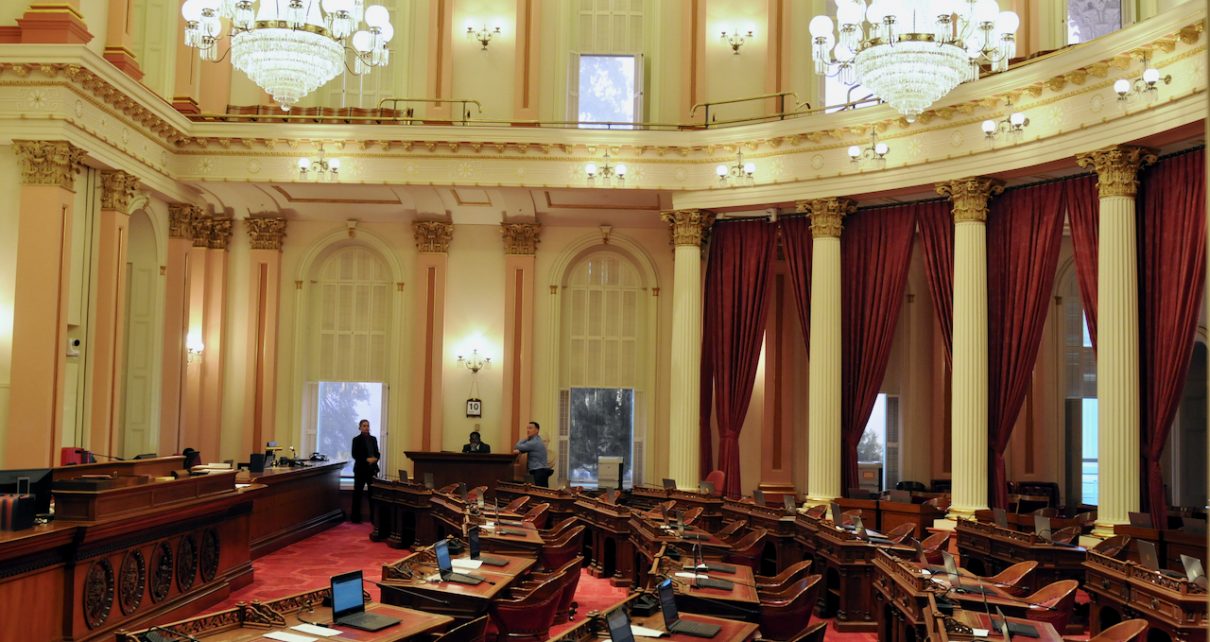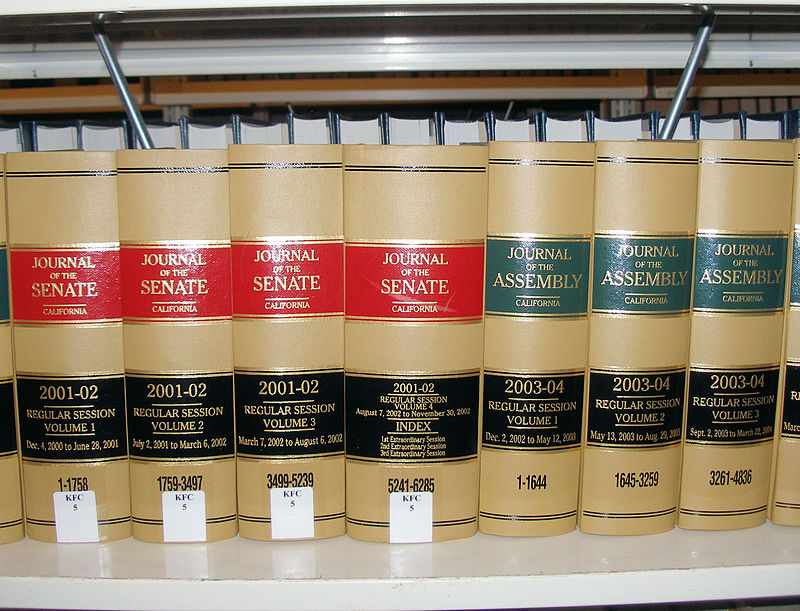
California Senate Chambers. (Photo: Kevin Sanders for California Globe)
Referral of Bills in the California Legislature
More than one committee might be appropriate to hear the bill
By Chris Micheli, February 7, 2020 6:38 am
After the introduction of a new bill in the California Legislature, or upon a bill passing one house and moving over to the other house for further consideration, that measure must be referred to a committee for a hearing. So, the first key step in the legislative process is bill introduction.
Thereafter, the second key step is getting the bill heard in a legislative committee. The referral or assignment of a bill is governed by the Joint Rules, as well as the respective rules of the Assembly and Senate. In the California Legislature, the referral of bills is done by the Rules Committee in each house.
Though the rules of both houses provide that their committees must hold hearings and act upon bills referred to them as soon as practicable after they have been referred to them, certain requirements must first be met before that occurs. As a general rule, a bill is referred to the committee(s) that have jurisdiction over the provisions of the bill based upon the rules of the respective house and past referral decisions.
In the Senate and Assembly, except as otherwise provided, the Committee on Rules refers each bill to a committee by a majority vote of the membership of the committee, unless upon a motion the Assembly or Senate, by an affirmative recorded vote of a majority of the Members, refers it to some other committee. A motion to refer a bill is not debatable, except as to the propriety of the motion, and it may not open the main question to debate.
Standing committees and their subcommittees are prohibited from taking action on a bill at any hearing held outside of Sacramento or during a joint recess. However, a committee may hear the subject matter of a bill during a recess so long as notice is published in the Daily File at least four days prior to the hearing.
During a regular session of the Legislature, committees must wait for a period of 30 days after a bill has been introduced and in print before they may take action on the bill. These prohibitions may be dispensed with by an extraordinary vote in the house considering the measure. This waiting period permits proponents and opponents to review the provisions of the bill and to prepare testimony for presentation to the committee.
A schedule or calendar of bills set for hearing is proposed by each committee in the Legislature. Publication of this list in the Daily File must occur at least four days in advance of a hearing by the first committee and two days in advance by subsequent committees of the same house. If a committee wishes to hold an informational hearing on a general topic, a four-day notice is also required.
As one can imagine, which committee gets to hear a bill could impact the outcome of the bill, depending upon the subject matter and the receptivity of the committee to the bill. In most instances, the bill referral is relatively straightforward. Sometimes, however, more than one committee might be appropriate to hear the bill. In most cases, only one policy committee will get to hear a bill. However, there are occasions when it is necessary for more than one committee to hear a bill. As a result, the referral of bills is an important part of the legislative process.
- Conservation Banks - February 22, 2026
- Mergers of Unincorporated Associations - February 21, 2026
- A Historic Look at Bill Introductions in the California Legislature - February 21, 2026



